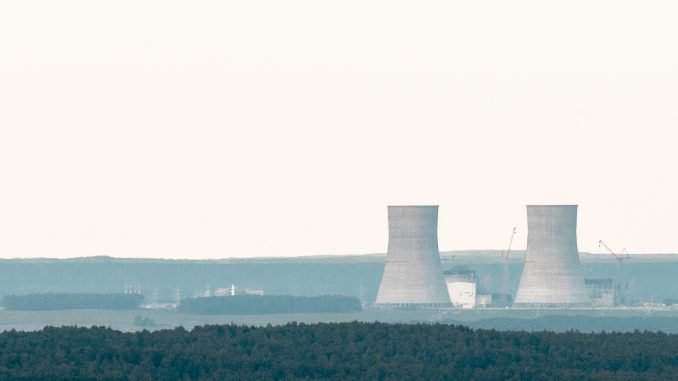
Lithuanian parliamentarians say that they collected the required number of signatures, but the Standing Committee removed the draft document from the agenda of the Parliamentary Assembly’s session in Minsk at the initiative of Swedish Socialist MP Kent Harstedt.
“To our great surprise, Sweden’s representative was against. It was a painful blow from our partners,” Virginijus Sinkevičius, head of the Lithuanian delegation, told BNS.
According to the lawmaker, he dismissed, during the discussion, the Swede’s arguments that the Astravyets project is a bilateral issue and underlined that nuclear accidents have no borders. However, Lithuania lost the vote.
Eight countries voted in favor of leaving the item on the agenda, 20 voted for it to be removed and 29 abstained.
The draft resolution was introduced by Lithuanian Conservative MP Laurynas Kasčiūnas.
“It’s unbelievable that the Eastern bloc has attacked the resolution with the hands of a Nordic country that sees environmental protection and human rights as its strategic priorities. It was a shock,” he told BNS.
According to Kasčiūnas, this shows that Lithuania’s Social Democrats should work more actively with their colleagues in other countries.
Under the draft resolution, the OSCE would have said that the Astravyets nuclear power plant is being built in a hurry and in defiance of quality and safety standards, and that its site was not properly selected.
The document would also have called on Belarus to rehabilitate political prisoners and to place a moratorium on the death penalty.
The OSCE Parliamentary Assembly is holding its annual session in Minsk this week. Its resolutions are recommendations and are used as a tool of political pressure.
Russia’s state corporation Rosatom is building the nuclear power plant in Astravyets, some 50 kilometers from Vilnius. The Lithuanian government worries that the project falls short of safety standards and that it may hamper the Baltic countries’ plans to synchronize their power grids with the Western European system.
In an effort to hinder the project, Lithuania plans to bar access for the plant’s electricity to its market and calls on other countries in the region to join the initiative.
The European Commission is cautious about the initiative. Brussels questions how the planned ban on electricity imports would fit into WTO rules and how that would help enhance nuclear safety.

Be the first to comment